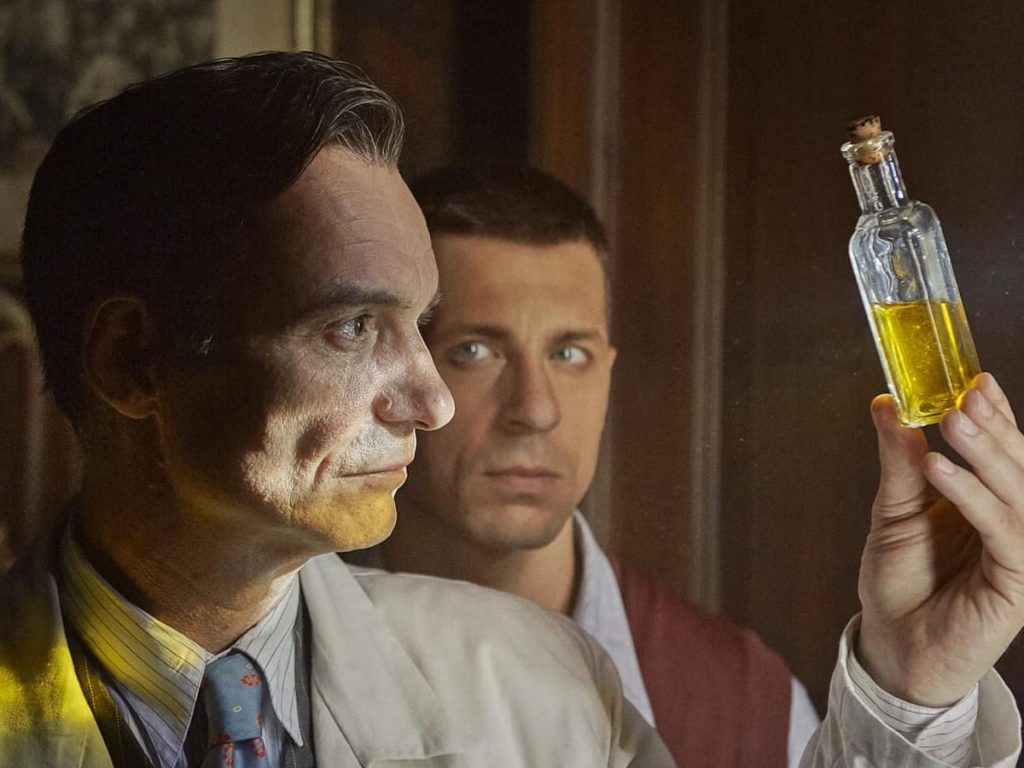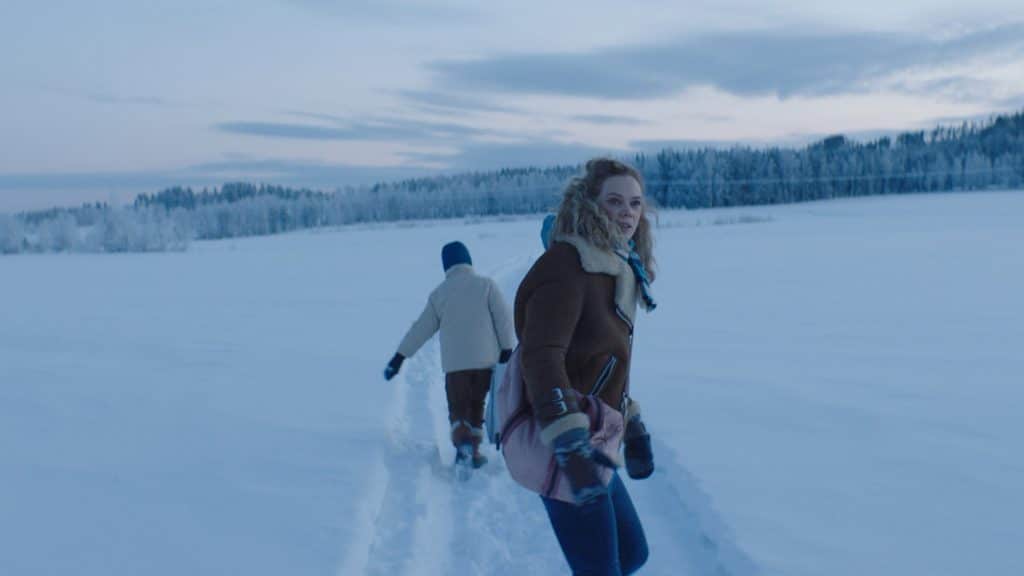Here’s hoping this year’s Academy Awards doesn’t leave female directors out of awards contention for best foreign film.
Every year, almost without fail, I find the Best International Feature Oscar to be the category most stacked with quality and originality. Perhaps that’s what happens when you try to fit an entire world of filmmaking talent into a five-film showcase. From Parasite to Pain & Glory to Timbuktu to A Separation, an Oscar nomination gives international talent the rare chance to be noticed by English-speaking audiences. But like Best Picture, does the International Feature Oscar have a female director problem?
The category is ahead of Best Picture when it comes to gender parity, but not by much. Only two films directed by women have been nominated for Best Picture in the past five years — and both of them (Lady Bird, Little Women) were directed by Greta Gerwig. By contrast, in that same span of time, International Feature has consistently featured one female-directed film out of five nominations. Better, although still nothing to be proud of.
On February 10th, the Academy announced that it had cut the 93 submissions for the International Feature Oscar down to a 15 film shortlist. I braced myself for impact — there were so many eligible films this year that I adored and didn’t want to go ignored — but was pleasantly surprised by the quality of the films they picked. Denmark’s Another Round felt like a no-brainer, given the star power of Mads Mikkelsen, as did Romania’s documentary Collective, for the harrowing power of the scandal it documented.
But the selected films that excite me most are the ones directed by women — Quo Vadis, Aida?, Hope, Charlatan, The Mole Agent — four excellent films that leave me hoping, surely this will be the year that they nominate more than one woman? Still, it’s worrying how every stage of the nominations process culls the percentage of female directors in the running. 32% of the films submitted for the International Feature Oscar were directed by women; 26% of the shortlist is woman directed; and if the category continues its pattern of only nominating one woman, the final lineup will be down to 20%. Will 2021 be the year to buck the trend?
The contenders

Besides their evident quality, what is it about the films on the shortlist that made the Academy deem them worthy, above other equally great films? If you’re a filmmaker who’s also made films in English, like Agnieszka Holland (Charlatan) or Thomas Vinterberg (Another Round), then you’re in with a shot. This year, if your film was about a man, it was more likely to make the shortlist. Only 27% of the female-made films that were submitted centered on a male protagonist, and yet 50% of those shortlisted did. But more than anything, the thing that unites the female-directed films on the shortlist is that they mirror the kinds of stories that the Academy would usually be all over if they were in English — only more unique, daring, and idiosyncratic versions of those stories.
My favourite film of the lineup, bar none, is Jasmila Žbanić’s Quo Vadis, Aida? (Bosnia and Herzegovina), a harrowing retelling of the 1995 genocide in Srebrenica that takes place mostly over two nail-bitingly tense days. The Academy loves “important” films about atrocities, from Holocaust films Schindler’s List and The Pianist to slavery dramas 12 Years a Slave and Django Unchained. They especially love it when historic tragedies are turned into immersive thrillers (1917, Dunkirk, Hacksaw Ridge). Quo Vadis, Aida? fits that bill without falling into any of the expected cliches. Žbanić makes us feel the violence of the Serbian army without explicitly showing any gore or death; a survivor of the Bosnian war herself, she treats war with unflinching realism and unsentimentality. Her film isn’t about traumatising her audience with images of atrocity but questioning the power structures that allowed that atrocity to happen.
Maria Sødahl’s Hope (Norway) is a drama about how a woman’s relationship with her husband shifts after she’s diagnosed with incurable brain cancer, but it’s nowhere near as morose as that sounds. Life-changing illness is an old friend of the Academy Awards, particularly when it comes to acting nominations: Julianne Moore (Still Alice), Eddie Redmayne (The Theory of Everything), and even one of the rare cases of a non-English performance being nominated, Emmanuelle Riva (Amour). Yet in Hope, we get a strikingly frank, practical day-to-day account of living with cancer, in a film that’s less about cancer and more about a tumultuous husband-and-wife bond. The film is based on Sødahl’s own brain cancer diagnosis nine years earlier (spoiler alert: she survived) and how the threat of death — and wild mood swings caused by life-saving medication — put her relationship with her husband into perspective. It’s a brilliant film — and it co-stars Stellan Skarsgård, whose name recognition likely helped it get a slot on the shortlist.

If you’re sick and tired of biopics — and you’re not alone — the always reliable Agnieszka Holland injects life into the genre with Charlatan (Czech Republic). Over the past five Academy Awards, there have always been between two to four biopics nominated for Best Picture each year. The worst of them feel more like a lecture than a film, and sand down the rough edges of their real-life protagonists. Holland’s film is slickly presented, morally thorny, and sometimes even downright weird. It makes compelling drama of faith healer and herbalist Jan Mikolášek (Ivan Trojan), whose job involves diagnosing illnesses by meticulously studying vials of urine that his patients provide him. The present-day action takes place in the ‘50s when Jan is arrested on charges of poisoning two of his clients; in flashback, we observe his harrowing youth in the army, how he learned to be a healer, and his love affair with his assistant, Frantisek (Juraj Loj). Holland’s entertaining film constantly keeps us on our toes as to whether we should trust Jan, or whether he lives up to the film’s name.
The Mole Agent (Chile), directed by Maite Alberdi, is the hardest of the four films to fit into a pre-existing box, but it’s also the lightest, and probably the slightest. It’s a documentary that’s set up like a detective film: a man in his ‘80s is hired by a detective agency to go undercover in a care home, where he investigates alleged elder abuse. It starts off as a wacky comedy, with jaunty music and scenes of the old man trying to figure out how to work WhatsApp. But it ends on a note more melancholy than comical, highlighting the loneliness of older people in care homes who are rarely visited by their relatives. It’s nowhere near as complex or layered as Quo Vadis, Aida?, Hope, or Charlatan, but it’s entertaining and goes down easy.
The also rans

The two female-directed films I was most disappointed to see left off the shortlist were Charter and True Mothers. They’re both character dramas about women grappling with motherhood — sadly a type of film that Oscar so often ignores, whether in English or not.
Charter (Sweden) was one of the best films of Sundance 2020, where it flew under the radar and has since struggled to get distribution in English-speaking territories. It’s a shame, because Amanda Kernell is one of the most exciting emerging directors, after her incredible debut, Sami Blood, and her psychologically complex followup, Charter. The film centres a morally questionable woman, Alice (Ane Dahl Torp), who abducts her two children for a charter trip to the Canary Islands in the middle of a custody dispute. Like Jan in Charlatan, we’re constantly wondering whether we should be on Alice’s side or not, although awards bodies tend to be a lot friendlier to male antiheroes than to female ones.
True Mothers (Japan) is the latest film from perennially underrated auteur Naomi Kawase, and it’s one of her best. At two hours and twenty minutes, it was the longest film I saw at TIFF 2020, and yet one of the only films that felt like it earned its length. Kawase offers an unusually nuanced look at adoption from two perspectives: the teenage girl who gives up her baby, and the middle-aged woman who adopts that child. It’s a smart, warm, and beautiful-looking film from a filmmaker in full control of her craft.
Yet Kawase has never been nominated for the International Feature Oscar, perhaps because her films are gentle, character-based, and often female-focused — and because she’s never made a film in English and got the recognition that entails. It goes to show that even in the more progressive International Feature category, certain stories are valued more than others.